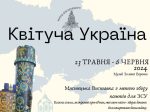-
 26.07.2024Regulation on the Implementation of Financial Monitoring by Subjects of Primary Financial Monitoring Has Been Published
26.07.2024Regulation on the Implementation of Financial Monitoring by Subjects of Primary Financial Monitoring Has Been Published -
 03.07.2024K.A.C. Group Is a Partner of the “Kraiyna Mriy” Festival
03.07.2024K.A.C. Group Is a Partner of the “Kraiyna Mriy” Festival -
 13.06.2024“Flowering Ukraine” Art Exbihition Was Held from May 30 to June 23 with K.A.C. Group as a Partner
13.06.2024“Flowering Ukraine” Art Exbihition Was Held from May 30 to June 23 with K.A.C. Group as a Partner -
 13.06.2024First Results of the First CFC Reporting
13.06.2024First Results of the First CFC Reporting -
 05.06.2024European Commission Welcomes FASTER Withholding Tax Initiative to Boost International Investment and Fight Tax Fraud
05.06.2024European Commission Welcomes FASTER Withholding Tax Initiative to Boost International Investment and Fight Tax Fraud
6 Russian Ctizens in the New Board of the Bank of Cyprus: What Is Wrong with the Work of the FATF
In order to continue to receive macro-financial assistance from the EU and to integrate into the European Union, Ukraine must bring its anti-money laundering legislation into line with European standards. But it also has many gaps that allow Russia, as a sponsor of terrorism, to remain unpunished. Volodymyr Harkusha, Managing Partner of K.A.C. Group, discusses this issue in an article for “Minfin”.
In order to continue to receive macro-financial assistance from the EU and to integrate into the European Union, Ukraine must bring its anti-money laundering legislation into line with European standards.
One of the requirements of the European Commission and the Organization for Economic Cooperation and Development (OECD) was the ratification of the rules of the Financial Action Task Force (FATF). On September 19, 2023, the Cabinet of Ministers approved the corresponding draft law.
Commenting on this event, Prime Minister Denys Shmyhal announced that “Ukraine will join the working group on combating bribery in international business transactions” and will continue the implementation of FATF standards. “We are fulfilling the conditions for receiving macro-financial assistance from the EU and obligations on the way to membership in the European Union,” the Head of Government said.
The Verkhovna Rada supported the Law “On Amendments to Certain Laws of Ukraine on Simplifying the Order of Information Required for Financial Monitoring”; Law “On Ratification of the Additional Protocol to the Convention of the Council of Europe on the Prevention of Terrorism”; Law “On Amendments to the Law of Ukraine “On Prevention and Counteraction of Legalization (Laundering) of Proceeds of Crime, Financing of Terrorism and Financing of the Proliferation of Weapons of Mass Destruction” on Protection of the Financial System of Ukraine from a State that Carries Out Armed Aggression Against Ukraine, and Adaptation of Legislation to Individual FATF Standards and the Requirements of EU Directive 2018/843″.
How FATF Reacted to the Russian Invasion of Ukraine
FATF, as the personification of the European avant-garde in the combat against dirty money, has its internal uncompromising procedures and rules, which should also apply in mutual relations with partners.
So, what do the facts say? In March-April 2022, the FATF issued a statement that the Russian invasion of Ukraine was contrary to the FATF’s core principles of promoting the safety, security and integrity of the global financial system. In June 2022, the FATF announced that Russia could no longer hold leadership or advisory positions, or participate in decision-making on standard-setting, the organization’s peer review processes, governance and membership issues.
In October 2022, the FATF imposed additional restrictions on Russia, in particular, prohibited it from participating in all current and future projects and meetings of the organization and its regional partnering bodies.
In February 2023, following reports of Russia’s arms trade with UN-sanctioned jurisdictions, as well as malicious cyber activity and the ongoing invasion of Ukraine, the FATF announced its decision to suspend the aggressor country’s membership. In fact, the organization got rid of Russian influence on its work.
Why Does the Resolution of the European Parliament on Recognition of the Russian Federation as a Sponsor of Terrorism not Work?
What happened after that? Russia committed many basic violations stipulated by the FATF regulations, the smallest of which should have automatically put the country on the “black” sanctions lists. One of the main ones is the financing of terrorism. After all, the European Parliament adopted a resolution recognizing Russia as a state sponsor of terrorism. Quoting the resolution: “In light of the above, the European Parliament recognizes Russia as a state sponsor of terrorism and a state that uses means of terrorism.” However, as the chairperson of the European Parliament Mrs. Johansson noted, there is currently no legal basis in the European Union for recognizing a third country as a state that supports terrorism.
There are no documents that would regulate sanctions against the state sponsor of terrorism or somehow describe the rules of interaction with such countries. Therefore, the resolution of the European Parliament will not yet have any legal consequences for Russia.
Why is the Russian Federation Still Not on the FATF “Black” List?
Nonetheless, the European Union announced 11 packages of sanctions, including the disconnection of Sberbank, Moscow Credit Bank and Rosselkhozbank from SWIFT. International companies are prohibited from providing accounting, consulting, and public relations services in Russia. That is, there is a clearly defined emphasis that from now on the Russian banking system (in terms of currency transactions) does not work in the mode inherent in all countries, and this process is not subject to control by the subjects of primary financial monitoring.
Moreover, the leadership of Russia itself admitted that it fully financed PMC “Wagner” (recognized as a terrorist organization) in the amount of 1 billion dollars, and also cooperates with countries under UN sanctions and included in the “black list” of the FATF – Iran and the North Korea.
These are more than convincing reasons for the FATF, an organization that promotes the security, protection and integrity of the global financial system and prevents the financing of terrorism, to include Russia in its “black” list.
Such a step would have consequences — at least, the disconnection from the SWIFT system of several leading banks of the Russian Federation. The result could be the collapse of the money flows of the aggressor country, not only in the sense of problems for Russian banks when cooperating with correspondent banks, but also with all natural and legal persons — residents of the Russian Federation, involved in international trade.
Did anything come out of this? Well, nothing. Despite Ukraine’s persistent statements, neither in June 2023 nor at the plenary session held in Paris in October, was a decision made to add Russia to either the “black” or “grey” FATF lists.
Something even more interesting happened! At this meeting, Bulgaria was included in the “grey” list of the FATF, a well-known global intermediary in the arms market, which legally organized the supply of military equipment to Ukraine in the amount which equals to half of Europe taken together. As well as Croatia, which organized promising transport logistics for Ukrainian grain through its Rijeka port.
Businessmen from the two eastern occupied regions and the Mykolaiv and Zaporizhzhia regions were extras at this celebration of transparent justice from the FATF. In the context of the relevant sanctions, businesses in the territories occupied by Russia have come under banking restrictions. In many European banks, additional compliance procedures and due diligence have been introduced for customers, for example, from the cities of Zaporizhia or Mykolaiv, which are not, have not been, and will never be occupied.
Against this background, some interesting events took place in Cyprus without much objection from the controlling European structures and the FATF. The new board of the Bank of Cyprus now includes six Russian citizens, and the controlling stake in the Cyprus Development Bank, CDB Bank, was bought by a group of Russian investors.
- Media (76)
- News (125)
- Events (19)
- Ukrainian Historical Notaphily (4)


